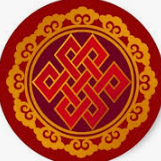Patients waiting for organ transplants face shortages
-
Recently Browsing 0 members
- No registered users viewing this page.
-
Topics
-
Popular Contributors
-
Latest posts...
-
87
BBC Faces Backlash Over Alleged Bias in Coverage of White Farmer Killings in South Africa
Let me twine the bias from your statement: Alleged bias is allegedly breaking the rules of the Royal Charter. -
38
What would you do?
Well he doesn't know which shop it is, which is unusual when you've known someone for months. The story does sound like just a story but he doesn't seem that sort of poster. Up to him anyway. -
-
14
If there is no life after death...
religions introduced concepts of heaven and hell. maybe their versions of heaven and hell are inaccurate distortions, but it doesn't mean there aren't other versions of heaven and hell that might be more feasible than those described in the religious texts. what happens to murderers after they die? same as everyone else? maybe not. -
21
Anyone got a Deye 10kW inverter - thoughts and experience?
It would be very much appreciated, if anyone has a reply to my question (in my post from Wednesday) about how to wire up the inverter? @Crossy? Before I buy, I want to make sure that it will actually work for me. -
43
Donald Trump Jr Hints at Possible Presidential Bid: ‘That Calling Is There’
More than you. In comparison you have no name, no money and no morals.
-
-
Popular in The Pub
-





.thumb.jpeg.d2d19a66404642fd9ff62d6262fd153e.jpeg)







Recommended Posts
Create an account or sign in to comment
You need to be a member in order to leave a comment
Create an account
Sign up for a new account in our community. It's easy!
Register a new accountSign in
Already have an account? Sign in here.
Sign In Now